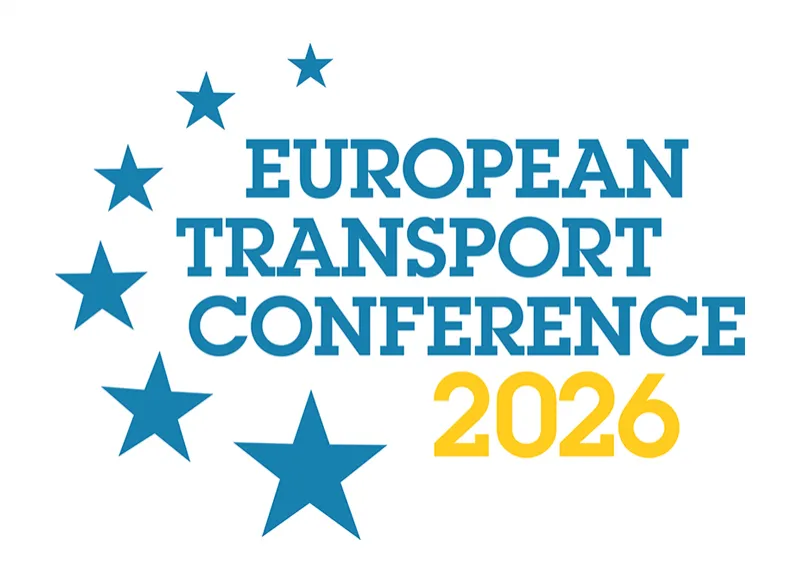-
Past ETC Papers

Browse, search and view papers from the past AET Conferences.
-
Members' Area

AET promotes networking and exchange of ideas, information and opportunities amongst members.
ETC Conference Papers
Conference Past Papers Repository
Spatial Transfer of Mode-Destination Models from the West Midlands to the South East Wales Regions of the UK
Seminar
Day 1 (9 Oct 2019), Session 3, Discrete Choice and Big Model, 16:30 - 18:00
Status
Accepted, awaiting documents
Submitted by / Abstract owner
Bhanu Patruni
Authors
James Fox and Bhanu Patruni, RAND Europe
George Bate, Mott MacDonald
Short abstract
This paper presents results from a spatial transfer of disaggregate mode-destination models developed using data collected in the West Midlands to predict behaviour in South East Wales.
Abstract
This paper presents results from a spatial transfer of disaggregate mode-destination models developed using data collected in the West Midlands to predict behaviour in South East Wales. The South East Wales model is a strategic multi-modal travel demand model for the South East Wales region. It was developed by Mott MacDonald, RAND Europe, Arup and David Simmonds Consultancy, is owned by the Welsh Government (WG) and is managed and operated by Transport for Wales (TfW) and its consultants.
A model transfer is defined as the application of a model, information, or theory about travel behaviour developed in one context to describe the corresponding behaviour in another context (Koppelman and Wilmot, 1982). Model transfers may be spatial, for example from one region to another, temporal, so applying a model estimated at one point in time to predict historical or future behaviour, or both. Model transfers allow models to be developed for significantly lower costs, and over shorter timescales, compared to developing a model from scratch. There are a few studies (Sikder, 2013, Bowman and Bradley, 2013) that demonstrate the practical use of such transfer methods. However, information on model transferability, for large scale applications outside of the United States is scarce. In this study, we present an application of a spatial transfer of the Policy Responsive Integrated Strategic Model (PRISM) developed for the West Midlands region to the South East Wales region.
The paper sets out definitions of transferability from the literature and introduces the transfer scaling approach that other researchers have used to make transfers of mode choice models. It then goes on to specify how the transfer scaling approach has been implemented in this study, using an existing local dataset to transfer the behavioural mode-destination choice parameters estimated from the West Midlands household interview data. The local choice data was collected as a part of a Personalised Travel Planning (PTP) project funded by Welsh Government. Larger Household Interview (HI) samples were collected for the Cardiff and Penarth areas, and the same survey forms were also used to conduct smaller surveys in Caerphilly, Pontypridd and Barry.
We present the key model results from estimation to show how the transfer has worked. We then present the detailed validation of model results from the base year implementation of transferred model parameters along with the results from the South Wales Metro – Phase 2 study, a region-wide project which aims to significantly improve rail connectivity, journey times and quality around Cardiff and the Valleys. The results demonstrate that the transfer process worked successfully, with models developing using behaviour data collected in the West Midlands able to explain behaviour in South East Wales. The study has confirmed the advantages of the transfer approach, specifically that models can be transferred using a much small sample of data in the transfer context than that were used for model development, and that existing models can be transferred more quickly than developing new models from scratch. In both cases, these advantages result in significant cost savings for model development.
References
Koppelman, F. and C. Wilmot (1982) Transferability Analysis of Disaggregate Choice Models. Transportation Research Record 895, 18–24.
Sikdur, S. (2013) Spatial Transferability of Activity-Based Forecasting Models, PhD Thesis, University of South Florida.
Bowman, J. and M. Bradley (2013) Testing Spatial Transferability of Activity-Based Travel Forecasting Models. Transportation Research Record 2669, 62-71.
Programme committee
Transport Models
Documents:
No documents yet.
Association For
European Transport
Forester House
Doctors Lane
Henley-in-Arden
Warwickshire, UK
B95 5AW
+44 (0) 15 64 793552
VAT number: 710 1866 64
Conference Supporters & Endorsers




Legal Entity
The Association for European Transport is registered as an Association ('vereniging') with the Chamber of Commerce for Haaglanden in The Netherlands under company number 27170096.
Built on Zenario




